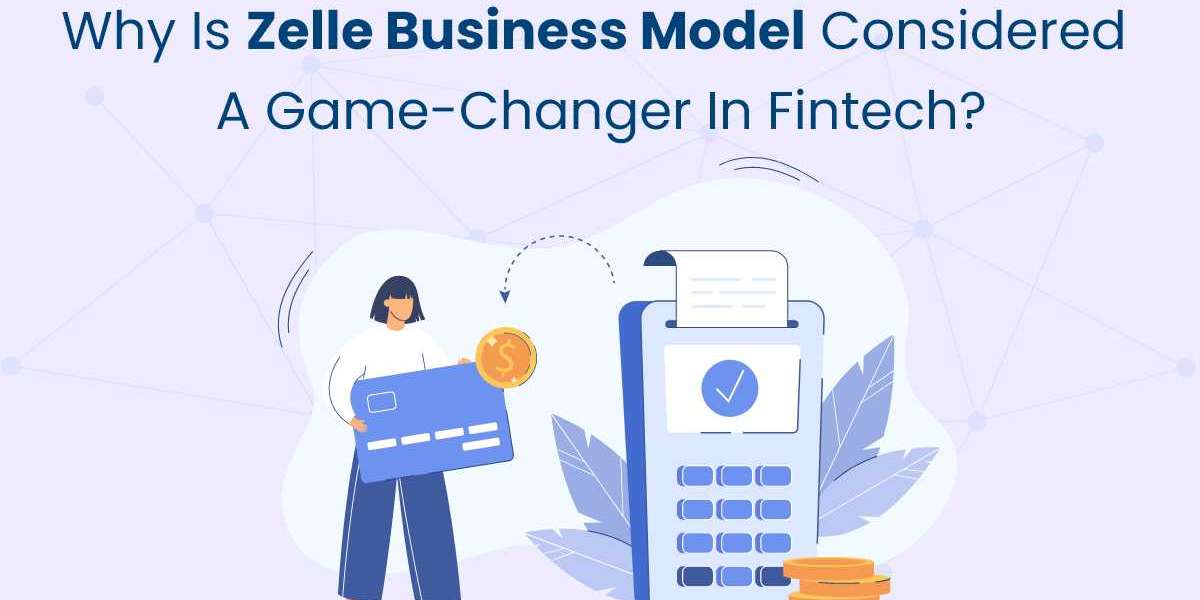In the rapidly evolving world of financial technology (fintech), Zelle has emerged as a standout player, transforming the landscape of peer-to-peer (P2P) payments in the United States. Launched in 2017 by Early Warning Services, a company owned by major U.S. banks, Zelle quickly became a preferred method for millions of users to send and receive money instantly. Its unique business model has not only propelled it to success but also disrupted the traditional fintech ecosystem. This article explores why Zelle's business model is considered a game-changer in fintech and how it has redefined the way people transfer money.
1. Integration with Established Financial Institutions
One of the most significant aspects of Zelle's business model is its seamless integration with established financial institutions. Unlike other fintech platforms that operate independently, Zelle is embedded directly within the mobile banking apps of participating banks and credit unions. This integration offers several advantages that set Zelle apart from its competitors.
Firstly, by partnering with major banks like JPMorgan Chase, Bank of America, and Wells Fargo, Zelle instantly gained access to millions of users without the need to build a customer base from scratch. This extensive reach allowed Zelle to scale rapidly, outpacing many standalone fintech apps.
Secondly, the integration with existing banking infrastructure means that Zelle partner banks can leverage the trust and security associated with these institutions. Users feel more confident using a service backed by their bank, reducing the barriers to adoption. This trust is crucial in the financial industry, where concerns about security and privacy are paramount.
2. Instantaneous Transfers
Zelle's ability to facilitate near-instantaneous money transfers is a key differentiator in the P2P payment space. While many fintech platforms require users to wait hours or even days for funds to be available, Zelle's transfers are typically completed within minutes, often immediately. This speed is made possible by Zelle's direct connection to users' bank accounts, bypassing the need for intermediary steps that slow down the process.
This instant transfer capability is not only convenient but also essential in situations where time-sensitive payments are required. Whether splitting a dinner bill or paying rent, users appreciate the immediacy of Zelle, which has contributed to its widespread adoption.
3. No Additional Fees for Users
Another game-changing aspect of Zelle's business model is its fee structure, or rather, the lack thereof. Unlike many other payment platforms that charge users fees for transactions, Zelle is free to use for consumers. The absence of fees makes Zelle an attractive option, particularly for those who frequently transfer money and want to avoid the costs associated with other platforms like PayPal or Venmo.
Zelle's revenue model is built around the fees it charges partner banks and credit unions for using its service, rather than charging end users directly. This approach not only encourages widespread use but also aligns with the interests of financial institutions, which benefit from increased customer engagement and satisfaction.
4. Leveraging Data Insights
Zelle’s parent company, Early Warning Services, has access to a vast amount of transaction data through its partnerships with banks. While Zelle does not sell individual user data, it can offer aggregated and anonymized insights to financial institutions. These insights are valuable for banks as they provide a deeper understanding of customer behavior, transaction patterns, and market trends.
By leveraging this data, banks can improve their services, target promotions more effectively, and enhance customer experiences. Zelle’s ability to provide these insights adds another layer of value to its offering, strengthening its relationships with partner institutions and solidifying its position in the fintech ecosystem.
5. Competitive Advantage in the Fintech Landscape
Zelle’s business model has given it a competitive edge in a crowded fintech market. While other platforms like Venmo, PayPal, and Cash App have built strong user bases, Zelle’s unique approach allows it to compete on different terms. By operating within the banking system, Zelle appeals to a broader demographic, including those who may be hesitant to use standalone fintech apps.
Additionally, Zelle’s focus on security, backed by the robust measures of its partner banks, positions it as a reliable and trustworthy option for users. This is particularly important as concerns about data breaches and financial fraud continue to rise.
6. Future Implications for Fintech
Zelle’s success has far-reaching implications for the fintech industry. Its business model demonstrates the potential for fintech innovations to work within, rather than outside of, traditional financial systems. This approach not only accelerates adoption but also mitigates some of the risks associated with fintech disruption, such as regulatory challenges and security concerns.
As the digital payment landscape continues to evolve, Zelle business model may inspire other fintech companies to explore similar partnerships with established financial institutions. By blending innovation with the stability of traditional banking, Zelle has charted a new path in the fintech world, one that could shape the future of financial services.
Conclusion
Zelle's business model is considered a game-changer in fintech because it combines the best of both worlds: the innovation and convenience of digital payments with the trust and security of established financial institutions. Its integration with banks, instant transfer capabilities, fee-free structure for users, and data-driven insights have all contributed to its rapid rise and enduring success. As Zelle continues to grow, it is likely to remain a dominant force in the fintech industry, influencing how future payment platforms are developed and operated.







